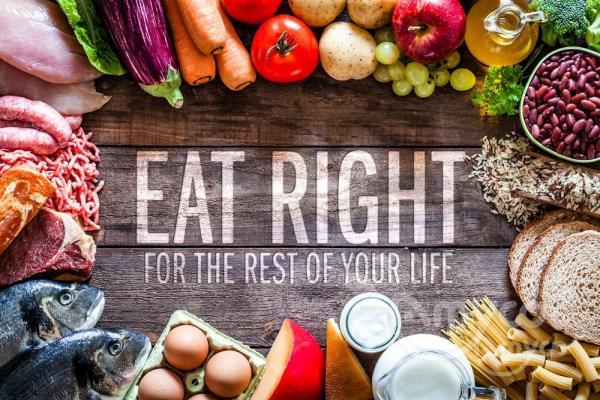How can we eat RIGHT, WELL, and HEALTHILY? - 翻译中...
Animal foods such as fish, poultry, eggs and lean meat are an important part of a balanced diet. These foods are rich in high-quality protein, lipids, fat-soluble vitamins, B vitamins and minerals, etc., but some contain more saturated fatty acids and cholesterol. Excessive intake can increase the risk of obesity and cardiovascular disease. Therefore, it needs to be consumed in moderation.
Recommendations of the Dietary Guidelines for Chinese Residents (2022)
- Eating fish, poultry, eggs and lean meat in moderation. 120-200 grams per day, including 40-50 grams of eggs.
- It is best to eat fish 2 times a week or 250-500 grams, eggs 280-350 grams, livestock and poultry 300-550 grams.
- Eating livestock should not exceed 500 grams per week.
- Eating eggs without discarding the yolk.
- Prefer fish instead of fatty, smoked and cured meats.
Why is it so recommended?
Let's take a look at the nutritional characteristics of these foods.
LIVESTOCKS
Generally speaking, pork, beef, mutton and other meat are rich in B vitamins and vitamin A, and rich in heme iron with high absorption and utilization, but the fatty acid composition of animal meat is mostly saturated fatty acids, and saturated fatty acids have been ingested. It is more likely to increase the risk of obesity and cardiovascular disease in the body.
POULTRY
The fat content of poultry such as chickens, ducks, and geese is lower than that of livestock meat, and the fatty acid composition is mainly monounsaturated fatty acid (oleic acid). Therefore, as long as the consumption of poultry meat is not excessive, the risk of chronic diseases such as type 2 diabetes and cardiovascular disease is generally not increased.
FISH
The fat content of yellow croaker, hairtail, mackerel, crucian carp, carp, cod and other fish is relatively lower than that of livestock and poultry meat, and contains more n-3 series of unsaturated fatty acids. It can maintain the normal function of rhodopsin, DHA to promote fetal brain development and EPA to prevent cardiovascular diseases such as atherosclerosis.
EGGS
Eggs, duck eggs, goose eggs, quail eggs, pigeon eggs and other egg proteins are rich in nutrients and are superior to other animal proteins, and the fat, vitamins and minerals contained in eggs are mainly concentrated in the yolk.
Fish, livestock, poultry and eggs are closely related to human health. Moderate intake can improve health, but improper intake will increase the risk of cardiovascular disease, obesity and certain tumors.
Research shows that
- High intake of fish or increased fish intake may reduce the risk of all-cause mortality, stroke, dementia and cognitive impairment.
- Poultry meat intake may not be associated with cardiovascular disease, prostate cancer.
- Egg intake was associated with increased serum cholesterol levels, but the effect was weak;
In healthy people, the consumption of 1 egg per day (7 eggs per week) was not associated with the risk of cardiovascular disease. For people with diabetes, egg intake increases the risk of cardiovascular disease;
There may be regional differences between egg consumption and the risk of developing type 2 diabetes, and egg consumption was not associated with the risk of developing type 2 diabetes in non-US regions.
- Excessive consumption of animal meat can increase the risk of type 2 diabetes, colorectal cancer and obesity, and increased consumption of animal meat can reduce the risk of anemia.
- Excessive intake of smoked food can increase the risk of gastric and esophageal cancer.
How should we eat meat?
1.Control the right intake
Control the total amount and disperse the consumption: The total weekly intake of aquatic products and livestock and poultry meat for adults shall not exceed 1.1 kg, and the number of eggs shall not exceed 7. Disperse these foods in each meal of the day and avoid concentrated consumption. It is best to have meat at every meal and eggs every day.
Small servings, cut into small pieces: When cooking meat, cut large pieces of meat into small pieces, slices or shreds before cooking to control your intake.
When eating out, reduce meat intake: minimize the number of times you eat out; when eating out, you must mix meat and vegetables, mainly light, and try to use fish and soy products instead of livestock and poultry meat.
2.Cook properly
When cooking, avoid frying, frying, grilling, etc. It is recommended to use steaming, boiling, stewing, and slipping methods, such as steamed fish, stewed chicken, etc. If you want to stew soup, you need to eat both soup and meat.
At the same time, cooking meat should be light, adding cooking oil and salt, using as little or no sugar as possible, and less spicy seasonings. Smoked and cured meats contain some carcinogens, which can increase the risk of certain tumors, and it is recommended to eat less or not.
QUESTIONARY
How can we eat RIGHT, WELL, and HEALTHILY?
The core opinions and scientific consensus of nearly 100 experts on nutrition and dietary issues--Dietary Guidelines for Chinese Residents (2022) has been released. Come and see how many of these eight guidelines you have achieved:
- Variety of food, reasonable collocation
- Balance in eating and exercising, the best weight for you
- Eat more fruits and vegetables, dairy, grains, soybeans
- Eat fish, poultry, eggs, lean meat in moderation
- Less salt and less oil, control sugar and limit alcohol
- Eat regularly and drink plenty of water
- Know how to cook, choose and read labels
- Distribute meals with public chopsticks and do not waste food





